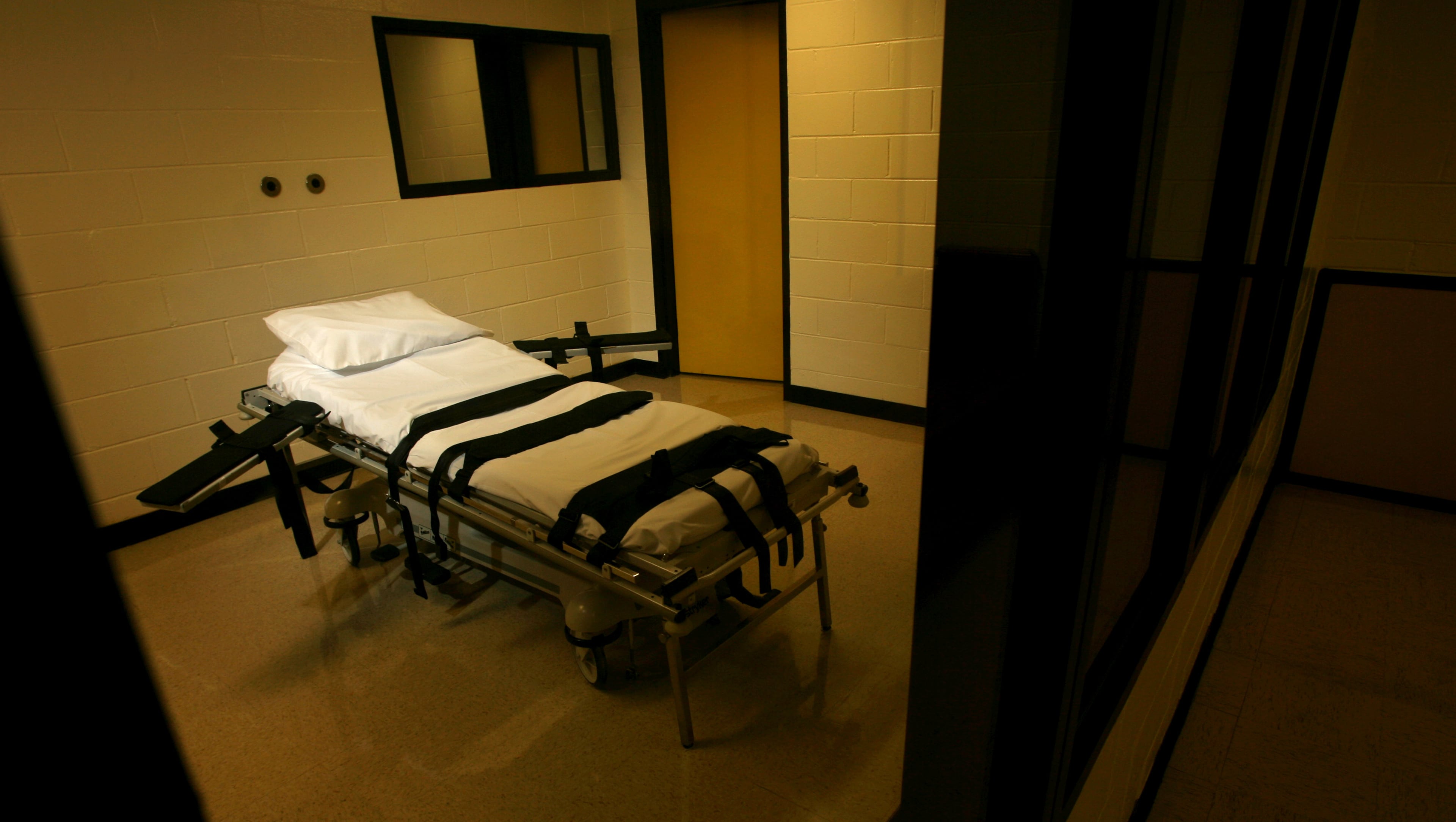As execution looms, Georgia murderer wants to be seen as a new man

The Keith “Bo” Tharpe who murdered his sister-in-law almost three decades ago is not the same man scheduled to be executed next week, his lawyers argued in a clemency petition to the state Board of Pardons and Paroles.
Instead, the 59-year-old man who now sits on death row is a much better person than the crack-addicted, angry man who fired three shotgun blasts into his sister-in-law. He’s also not the same man who kidnapped his estranged wife and allegedly sexually assaulted her beside a road, the petition claims.
Tharpe “has spent the past nearly 27 years regretting his terrible decisions and the actions that culminated in his sister-in-law Jaqueline Freeman’s tragic death on September 25, 1990. He wishes more than anything he could take back that day and give back Mrs. Freeman’s life,” his lawyers wrote in the petition that was declassified on Friday. “But he also knows that he cannot do that nor can he erase the unimaginable pain he has caused Mrs. Freeman’s family, his wife... her family, and his own family.”
>> RELATED: The faces of Georgia’s Death Row
>> MORE: How Lethal Injection Works
“Mr. Tharpe has proven himself to be much more than his crime,” the petition says, noting that Tharpe has used his time in prison to overcome his addictions to drugs and alcohol.
Tharpe is scheduled to be the second man Georgia has executed this year. His lethal injection is set for Tuesday, the day after the 27th anniversary of the crimes committed surrounding a failing and violent marriage.
On that day, Tharpe, driving a borrowed truck, intercepted Freeman and his estranged wife on their way to work in Macon. He pulled the 29-year-old Freeman from the car and shot her, leaving her body in a ditch for her husband and young children to discover a few minutes later. He then kidnapped his wife.
He was found guilty three months after the shooting, and on Jan. 10, 1991, was sentenced to death.
Tharpe’s lawyers have argued in court filings that his conviction and death sentence should be invalidated because one juror’s vote may have been motivated by racism.
Hours before the Parole Board declassified his clemency petition early Friday, the federal appeals court in Atlanta declined to hear Tharpe’s appeal of a federal judge’s ruling denying his jury bias claims that one of his jurors voted for the death penalty because Tharpe is black.

The decision will be appealed to the U.S. Supreme Court, and Tharpe’s lawyers on Friday filed claims in Georgia’s state courts.
The juror misconduct claims focus on a sworn statement signed by juror Barney Gattie, who said, "After studying the Bible, I have wondered if black people even have souls."
Gattie, who is now deceased, said Freeman, the murder victim, came from a family of “nice black folks.”
“If they had been the type Tharpe is, then picking between life and death for Tharpe wouldn’t have mattered so much. My feeling is, what would be the difference?”
As for Tharpe, he “wasn’t in the ‘good’ black folks category in my book (and) should get the electric chair for what he did.” (Georgia has changed its method of execution to lethal injection since Tharpe’s 1991 trial.)
Gattie signed the affidavit in May 1998, but he soon recanted after meeting with lawyers in the State Attorney General’s Office.
“I did not vote to impose the death penalty because he was a black man,” Gattie said in a second affidavit.
>> RELATED: Reporter describes witnessing an execution
A three-judge panel of the 11th U.S. Circuit Court of Appeals wrote in an order issued Thursday that Tharpe’s juror bias claims failed to make “a substantial showing of the denial of a constitutional right,” the court said.
But the 11th Circuit did not completely shut the door on Tharpe’s claims. It noted the U.S. Supreme Court ruled in March that courts can examine what happened in a jury room if they can show racial prejudice played a role in deliberations. But the judge who oversaw the trial has to make that determination. The 11th Circuit said it would not consider Tharpe’s appeal until the juror bias claim is pursued and exhausted in Georgia’s state court system.
Tharpe also is hoping the Parole Board will save him. His lawyers, as well as those who want to see his sentence carried out, will meet in private with the five-member board on Monday.
Tharpe's lawyers also want the Parole Board to take into account that Tharpe has changed. His petition contains pleas from Tharpe's 95-year-old mother, one of his five daughters, a sister, aunts, ministers, prison staff and at least 20 new and old friends who described him as worthy of mercy.
He walks “God’s path,” on friend wrote, and is “now a man who, even in the often undignified environment of prison, conducts himself with humility … (and) acts as a positive, peace-promoting presence in the prison.”


